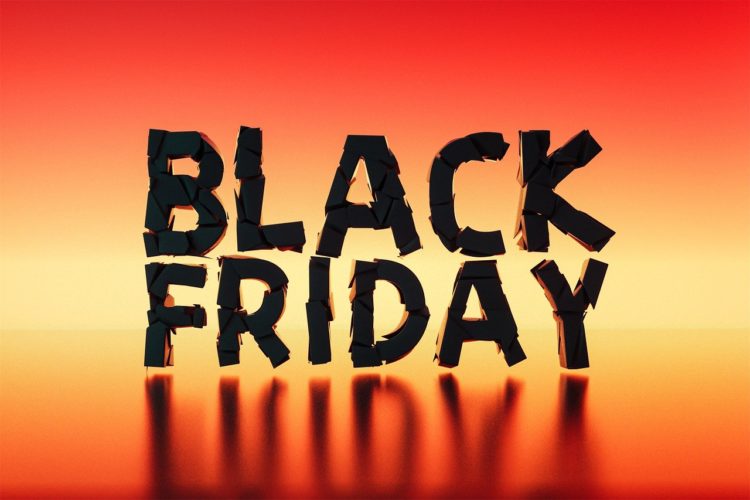Black Friday, once the pinnacle of American shopping holidays, has become a global phenomenon over the years. But with changing consumer behaviors, the rise of online shopping, and competition from other sales events, many are left wondering: Is Black Friday still worth it in 2024?
Let’s explore the various angles to help answer this question.
1. The Evolving Face of Black Friday
Historically, Black Friday was synonymous with chaotic scenes of shoppers storming stores in the early morning hours to snag limited-time deals. However, the digital revolution has fundamentally changed this dynamic. In 2024, Black Friday is no longer confined to just one day. It has expanded to a week, or even a month, of deals both in-store and online.
The convenience of online shopping has taken precedence, offering consumers the ability to shop from the comfort of their homes without the stress of long lines or physical altercations over a flat-screen TV. However, some critics argue that the sheer volume of online promotions throughout the year has diluted the uniqueness of Black Friday.
2. Competition from Other Shopping Events
Black Friday used to reign supreme as the only major shopping event of the year, but in 2024, it faces fierce competition from newer sales periods:
- Cyber Monday: Once an afterthought, Cyber Monday has blossomed into a major event focused on online shopping, offering tech deals and discounts on everything from gadgets to software.
- Amazon Prime Day: Amazon’s self-created shopping holiday, which takes place twice a year, has become a significant competitor to Black Friday. With exclusive deals for Prime members, it encourages consumers to spend outside of the traditional holiday season.
- Singles’ Day: This Chinese shopping event, held on November 11th, has gained international traction, boasting larger sales figures than Black Friday in certain regions.
As a result, consumers now have more opportunities to find deals outside of Black Friday, reducing the urgency that once characterized the event.
3. Inflation and Economic Uncertainty
The economic landscape in 2024 has been shaped by inflation and ongoing uncertainty. For many consumers, rising costs of living have tightened budgets, making Black Friday’s “bargain” appeal more attractive. However, with inflation impacting retail prices, some shoppers have noted that discounts may not feel as steep as they once did.
Retailers, grappling with supply chain disruptions and higher costs, have had to adjust their strategies. While discounts still exist, they may not be as dramatic as in years past. For budget-conscious shoppers, it’s important to scrutinize whether Black Friday deals truly represent significant savings.
4. Sustainability and Ethical Concerns
In recent years, there has been a growing emphasis on sustainability and conscious consumerism. Many shoppers are becoming more aware of the environmental and ethical impacts of overconsumption, leading them to question whether participating in Black Friday aligns with their values.
The rise of “Green Friday” movements, which encourage consumers to focus on eco-friendly purchases or simply abstain from shopping on Black Friday, reflects this shift in mindset. Some consumers are opting to support small businesses, buy secondhand, or invest in experiences rather than material goods.
5. Best Deals Still Exist (But with Caution)
For deal hunters, Black Friday remains a prime opportunity to score discounts on big-ticket items like electronics, appliances, and clothing. In 2024, some of the best deals are still concentrated in tech—think smartphones, laptops, and gaming consoles. Additionally, home goods and holiday-related products tend to see significant markdowns.
However, experts warn that not all deals are created equal. Retailers sometimes inflate prices before Black Friday to make discounts look more appealing than they are. Price comparison tools and apps can help shoppers verify whether they’re getting a genuine bargain.
6. The Rise of Buy Now, Pay Later (BNPL)
A significant trend influencing Black Friday shopping in 2024 is the rise of Buy Now, Pay Later (BNPL) services. Companies like Klarna, Afterpay, and Affirm offer shoppers the ability to purchase items in installments. This trend makes it easier for consumers to afford big-ticket items without breaking the bank upfront. However, it also raises concerns about encouraging overspending, as consumers may not immediately feel the financial impact of their purchases.
7. Small Businesses and Local Alternatives
While Black Friday traditionally benefits large retailers, small businesses have increasingly joined the fray. In 2024, local businesses and independent retailers are offering their promotions to attract holiday shoppers. For those looking to support their community or find unique, handcrafted items, shopping small during Black Friday (or on Small Business Saturday) may be more appealing than heading to major chains.
Conclusion: Is Black Friday Still Worth It in 2024?
The answer depends largely on individual priorities. For tech enthusiasts and deal hunters, Black Friday still offers opportunities to score significant discounts, especially if you’re strategic with your shopping. However, with the rise of alternative sales events and an increased focus on sustainability, the urgency and appeal of Black Friday have undoubtedly shifted.
Shoppers in 2024 must weigh the convenience of year-round sales and their ethical considerations against the promise of a good deal. If approached with a plan and a discerning eye, Black Friday can still be worth it—but it’s no longer the one-size-fits-all shopping holiday it once was.


